Additions to the Blogosphere
 Wednesday, August 23, 2006 at 10:34PM
Wednesday, August 23, 2006 at 10:34PM  I want to tell you about some new (or somewhat new) blogs about handheld computing that are out there in the blogosphere:
I want to tell you about some new (or somewhat new) blogs about handheld computing that are out there in the blogosphere:
Mobile MusingsHow do I come across these brilliant blogs? I subscribe to Google Blog Searches. As you know, I'm an avid Bloglines user. I absolutely love that all of my updated blogs and RSS feeds are waiting for me in one place. I use Bloglines to subscribe to the RSS feeds for searches like these: handhelds + education, handhelds + classroom, handhelds + learning, podcasting + education, and pda + classroom.
Karen Fasimpaur, president of K12 Handhelds, writes about mobile technologies.Handheldman - Journal
Steve Byrd, a passionate and geeky educator, writes about educational technology. Steve's writing has a unique voice that is really entertaining to read. Also check out his Handheldman Podcast.Pocket-Ed Futures Blog - Pocket PCs in the Classroom
Ian Marsden from Australia writes about his use of Pocket PCs with students. Ian includes lots of great lesson ideas.Handhelds in the Classroom
Debbie Donohue recently started a blog. She is really hooked on handhelds. I mean, really hooked. I submit this quote as evidence, "If I lost my handheld computer I may as well stay in bed in the morning because I wouldn't know where to go or how to get there!" Be sure to check out the cool video Debbie recently posted.Ubiquitous Thoughts
Mark van 't Hooft works for the Research Center for Educational Technology at Kent State University. He writes his thoughts and ideas about teaching, learning, and computing.The Pre-Service Teacher Blog
Dale Ehrhart is going to make one heck of a teacher. He has lots of interest in handheld computing. Recently he's been blogging about educational applications he has programmed himself. You go Dale!
If you have a blog or know of one that you'd like to share, please tell us about it by adding a comment to this post!






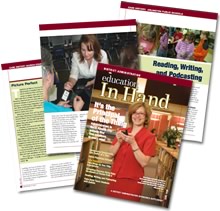

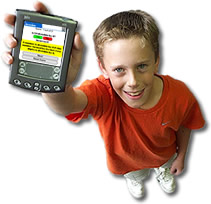 A search of
A search of 
 Spreadsheets are powerful tools! In fact, spreadsheets became a "killer application" in the 1980s because they were so useful that people were finally willing to buy the computers to run them on. With computerization, spreadsheets are no longer just ledgers to track money; they can be used for all kinds of exciting things! Microsoft Excel is number one spreadsheet application for desktop computers. On Palm OS computers, there's Sheets To Go (part of Dataviz's Documents To Go). On Pocket PC computers there's Excel Mobile (or, on older handhelds, Pocket Excel). Note that you must upgrade to the premium version of Documents To Go to make graphs on the handheld. Excel Mobile has free graphing abilities while Pocket Excel does not. However, even without graphing, there are great uses for spreadsheets.
Spreadsheets are powerful tools! In fact, spreadsheets became a "killer application" in the 1980s because they were so useful that people were finally willing to buy the computers to run them on. With computerization, spreadsheets are no longer just ledgers to track money; they can be used for all kinds of exciting things! Microsoft Excel is number one spreadsheet application for desktop computers. On Palm OS computers, there's Sheets To Go (part of Dataviz's Documents To Go). On Pocket PC computers there's Excel Mobile (or, on older handhelds, Pocket Excel). Note that you must upgrade to the premium version of Documents To Go to make graphs on the handheld. Excel Mobile has free graphing abilities while Pocket Excel does not. However, even without graphing, there are great uses for spreadsheets.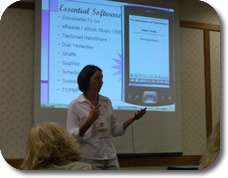 Janis Davis and Connie LaRue, from
Janis Davis and Connie LaRue, from
 I've blogged about Elliot and Cathie's message before on
I've blogged about Elliot and Cathie's message before on 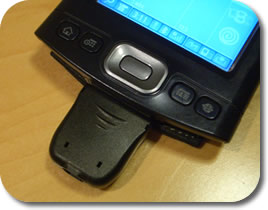
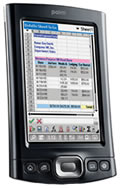 Palm's July 17, 2006 press release,
Palm's July 17, 2006 press release,  Although thousands educators no longer inhabit the San Diego Convention Center, the National Educational Computing Conference continues online.
Although thousands educators no longer inhabit the San Diego Convention Center, the National Educational Computing Conference continues online. 